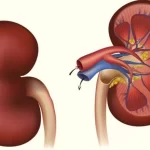Acute Kidney Injury (AKI) is a serious medical condition that occurs when the kidneys suddenly lose their ability to function properly. This can lead to a buildup of waste products in the body, electrolyte imbalances, and fluid overload. In this blog post, we will explore the causes, symptoms, and treatment options for AKI.
Causes of Acute Kidney Injury
AKI can be caused by a variety of factors, and identifying the underlying cause is crucial for effective treatment. Some common causes include:
- Dehydration: Insufficient fluid intake or excessive fluid loss, often due to vomiting, diarrhea, or sweating, can lead to dehydration and subsequently, AKI.
- Reduced Blood Flow to the Kidneys: Conditions such as severe infections, heart failure, or shock can reduce blood flow to the kidneys, resulting in AKI.
- Toxic Ingestion: Certain medications, contrast dyes used in medical imaging, and toxins can damage kidney tissue and trigger AKI.
- Obstruction: Blockages in the urinary tract, such as kidney stones or an enlarged prostate, can prevent the normal flow of urine and lead to AKI.
- Autoimmune Diseases: Conditions like lupus or vasculitis can cause inflammation of the kidneys, affecting their function.
Symptoms of Acute Kidney Injury
The symptoms of AKI can vary, and they may not always be immediately apparent. Common signs include:
- Decreased Urine Output: One of the earliest signs of AKI is a reduced amount of urine produced.
- Fluid Retention: Swelling in the legs, ankles, or face due to the body’s inability to eliminate excess fluid.
- Fatigue and Weakness: The buildup of waste products in the blood can lead to fatigue and weakness.
- Shortness of Breath: Fluid overload can also affect the lungs, causing difficulty in breathing.
- Confusion: Impaired kidney function can lead to a buildup of toxins in the blood, affecting cognitive function.
Treatment
Treatment for AKI depends on the underlying cause and the severity of the condition. Common approaches include:
- Addressing the Underlying Cause: Identifying and treating the root cause of AKI is essential. This may involve managing infections, adjusting medications, or removing blockages.
- Fluid Management: Balancing fluid intake and output is crucial to prevent dehydration or fluid overload. In some cases, intravenous fluids may be administered.
- Medication Adjustment: Certain medications that can contribute to kidney damage may need to be adjusted or discontinued.
- Dialysis: In severe cases, where the kidneys are unable to adequately filter waste products, dialysis may be necessary to remove excess toxins and fluids from the blood.
- Supportive Care: Patients with AKI may require supportive care to manage symptoms and prevent complications.
Conclusion
Acute Kidney Injury is a serious medical condition that requires prompt attention. Understanding the causes, recognizing the symptoms, and seeking timely medical intervention is crucial for a better prognosis. If you suspect AKI or experience any concerning symptoms, it is essential to consult with a healthcare professional for a thorough evaluation and appropriate management.






